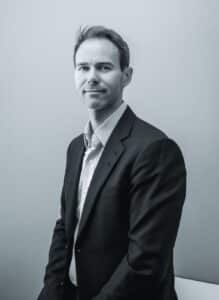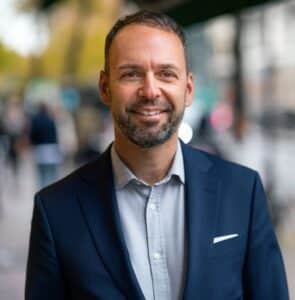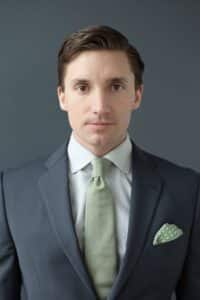Stockholm (HedgeNordic) – Investors have broadly been allocating to hedge funds to achieve alpha and risk mitigation – the latter stemming from diversification benefits, tail risk reduction, or diminished correlation. It is becoming increasingly clear that neither of these objectives can be maximized without a commitment to sustainability. The teams behind several long/short equity funds from the Nordics are in exact agreement that integrating sustainability and environmental, social, and governance (ESG) considerations in the investment process helps build more resilient portfolios able to deliver better long-term, risk-adjusted returns.

“Our approach to ESG has more of an operational focus. We view the sustainability of a business model as something different and broader than ESG,” co-founder Christer Bjørndal explains CARN Capital’s approach to sustainability. “ESG issues are typically something we can engage a company on, as it may relate to board composition, disclosure or reporting. We can affect change in these areas as an active owner,” elaborates Bjørndal, the co-founder of the Norwegian asset manager that runs long/short equity fund CARN Latitude. “Sustainability, on the other hand, relates to the business model itself, and is much more difficult to change.”
Bjørndal goes on to emphasize that integrating ESG considerations in the investment process can lead to better long-term, risk-adjusted returns. “While we believe sustainability is more important (“the what”), ESG analysis certainly tells us something about “the how” when it comes to how a business is managed,” reiterates Bjørndal. “Among other things, ESG metrics can tell us something about operational efficiency, risk management, brand value, employee attraction & retention, and access to capital, customers, and markets,” he adds. “These are clearly important drivers of risk and return.”
The team at Norron Asset Management, which has two long/short equity funds on its extended range of products, corroborates Bjørndal’s insights, with portfolio manager Johan Svantesson pointing out that “we consider ESG as an opportunity contributing to positive alpha.” Svantesson and his colleagues “consider financial risks equated with ESG risks,” implying that sustainability risk corresponds to investment risk for investors.
Another Norron portfolio manager, Marcus Plyhr, believes that “companies that have an active approach to ESG and transition their businesses can lead to higher multiples by lower cost of capital.” According to Plyhr, “large investments have to be made to reach the Paris agreement and the Sustainable Development Goals. We expect the companies that enable this transition towards a more sustainable economy will benefit from higher growth.” This means that a focus on sustainability can lead to long-term, risk-adjusted returns.

Stefan Roos, the founder of Stockholm-based hedge fund manager Origo Fonder and the CIO of its long/short equity fund Origo Quest 1, “absolutely” believes that the consideration of ESG aspects in a portfolio improves risk-adjusted returns. “Already when we started Origo back in 2013, engagement and responsible ownership was a cornerstone in our investment process,” says Roos, who manages Origo Quest 1 alongside fund manager Christoffer Ahnemark. “We are active owners and have pursued several important issues ourselves or together with other owners. We clearly see that this has created alpha.”
Individual Approaches to ESG
There is a wide range of approaches within sustainable investing, with significant differences both in investment objective and purpose. Yet, all sustainable investing involves pioneering better ways of doing business. “We have always believed that a quality company beats a mediocre company over the long run and having a sustainable business model is really the first principle of quality,” Stefan Roos explains Origo Fonder’s initial approach to sustainable investing. In 2018, the Origo team crystallized the approach by creating an advisory board with the Nordics’ leading sustainability expert Sasja Beslik and digitalization expert Ulrika Viklund, Former Head of International Growth at Spotify.
“Together, we developed a definition and vision that we strongly believe in, and that is our guiding star in the daily management of our fund Origo Quest 1,” says Roos. The process includes three important steps. “First, we exclude sectors that never will meet our basic requirement. This exclusion is also stated in the fund´s regulations,” starts Roos. “Secondly, we look for companies that generate both shareholder value and societal benefit. And finally, we are committed owners and drive various issues directly to the companies’ management and boards.”
Sharing a similar mindset as active owners, Norwegian asset manager CARN Capital follows a similar playbook for sustainable investing as Origo Fonder. “At CARN, ESG and sustainability analysis are fully integrated components of our investment process, where we combine exclusion, positive selection, and ESG integration,” explains Christer Bjørndal. “As fundamental conviction-driven investors, the more we know about a company, the better. ESG analysis is a key component in building that conviction,” he continues. “Every member of our investment team is wholistically responsible for the analysis of a company’s fundamentals and its ESG or sustainability profile.”
“In and of itself, an average or below average ESG score may not necessarily deter us from investing, because affecting positive change can actually create or crystallize value,” Bjørndal elaborates on CARN’s approach to sustainable investing. “But if the business model is not sustainable, we would not invest,” emphasizes the co-founder of CARN Capital. “An unsustainable business model simply offers an inferior long term risk/reward.”
Classified as article 8 funds under the Sustainable Finance Regulation Disclosure (SFDR), Norron’s absolute return funds – Norron Select and Norron Target – promote environmental or social characteristics and integrate sustainability into their investment process. “We are active investment managers that promote sustainability in all our investments,” says portfolio manager Johan Svantesson. “We report taxonomy and SDG [Sustainable Development Goals] data monthly since October this year. We do ongoing ESG research on all of our investments and we have strict exclusion criteria’s that apply to all of our funds,” adds Marcus Plyhr.
External Engagement and External Data
All three interviewed asset managers rely on external engagement to nudge their approaches to sustainable investing in the right direction. In addition to creating a sustainability-focused advisory board back in 2018, Origo Fonder also lets an external investment bank analyze its ESG-profile “to ensure that we are on the right track,” says Stefan Roos. “This is greatly appreciated by our investors and other stakeholders.”
CARN Capital, meanwhile, “made the decision to engage with the Swan label to have our strategy achieve that certification as a quality stamp on our process as such,” explains Christer Bjørndal. “With SFDR and further regulation dictating how asset managers can claim to approach this subject matter, such independent certifications become less important in terms of credibility,” acknowledges Bjørndal. “A more homogenous framework for evaluating an asset manager’s approach to ESG and sustainability is a good thing, in the sense that it more easily allows transparency and comparisons. A concern we have, however, is that ESG and sustainability is becoming more of a compliance issue, rather than one of making better investment decisions and actively contributing to positive change.”
The team at Norron Asset Management “base our ESG processes on the EU legislation, and stay open-minded towards the development of regulations and how the market will develop,” says Clara Hamrén, ESG Manager at Norron Asset Management. “We are positive to the new regulations and do believe that this will lead to more transparency, comparability and knowledge and therefore less greenwashing,” she continues.
Both Norron and CARN have built their sustainability approach on the UN Sustainable Development Goals. “There are many different definitions of sustainability,” says Clara Hamrén. “At Norron, we define sustainability in accordance with the Sustainable Development goals and the EU legislation,” she elaborates. “In our assessment of sustainability, we use the UN sustainable development goals as a framework,” confirms Christer Bjørndal of CARN Capital. “We are risk and return-driven in our approach, but we seek exposure to companies who are positively aligned with the UN sustainable development goals, and emphasize avoiding businesses that hurt our planet and the people who inhabit it.”
Stefan Roos of Origo Fonder, however, does not place too much emphasis on ESG metrics and data. “We do not believe so much in big ESG data because of the simple fact that they do not have correct KPIs on Nordic small caps,” argues Roos. “Garbage in, garbage out is a clear risk if you completely build your process on those data basis.” With a concentrated long/short portfolio focused on unique Nordic small caps, “we focus much more on what the companies actually are doing in terms of green innovation and transformation,” says Roos. “We have access to company management teams and to other shareholders, which is important if you are claiming that you are an active and sustainable investor,” he continues. “Our approach is based on analysis, a deep understanding of each company´s unique challenges and active ownership. Sustainability is an important part of our company analysis and should contribute with positive return, not something that is conducted from a sales- or PR perspective.”
Increasing ESG Awareness
With a fair amount of greenwashing and other ESG-related window dressing going on, investors need to extend their due diligence and be more attentive, argues Stefan Roos. “I believe that many of the large fund companies have enormous challenges in this area and that customers will increasingly question what they are getting for their money,” argues Roos. “We see, for example, that funds have been renamed but have the same holdings as before. And we are not going to talk about all index funds or funds with low active share,” he continues “How can you call yourself sustainable when you are a truly passive owner and almost own every share that are included in the index?”
However, investor awareness and knowledge about sustainable investing is constantly increasing. “In the Nordic region, there has been an increasing demand when it comes to ESG awareness,” says Clara Hamrén from Norron. “However, outside the Nordic region we have noticed that the shift has been somewhat slower. On the positive side, we have seen that the ESG awareness is now increasing outside of the Nordic region, too.”
“Looking at flow numbers, the increasing ESG awareness and demands among investors seem quite clear in this regard,” confirms Christer Bjørndal. “In general, our investor base has a high level of awareness when it comes to ESG and sustainability. This is probably part of the reason they invested with us in the first place,” argues Bjørndal. “Our customer base largely consists of foundations, family offices and municipalities and for them this is already an important area,” says Stefan Roos about ESG awareness among Origo Fonder’s investor base. “But we notice that more and more ESG-conscious private investors are contacting us now, so the demand is clearly increasing.”
Sustainable investing is much more than a catchphrase in the fund management industry, with long-term sustainability trends set to create winners and losers and thereby alpha opportunities for long/short equity managers. “We promote ESG investing and believe that sustainability is crucial in the long run,” argues Clara Hamrén. “In order to meet the Paris Agreement and the Sustainable Development Goals, not only us, but all investors have to support and promote investments towards a more sustainable society.”
This article features in HedgeNordic’s 2021 “ESG & Alternative Investments” publication.
Photo by Aaron Burden on Unsplash



